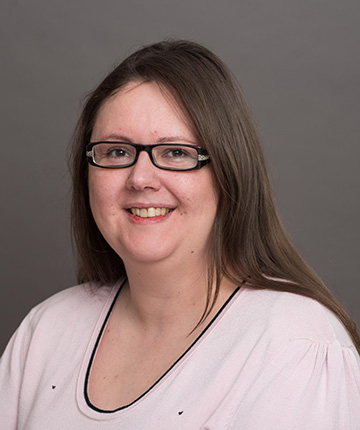
Karen Hampson
In this installment of Senior Member Insights, OPN talks with Karen Hampson—a senior researcher in the Department of Engineering Science at the University of Oxford, U.K. Her research expertise is in developing adaptive optics systems for biological imaging and automatic alignment algorithms for satellite optics. In addition, Hampson is Chair Elect of the Applications of Visual Science OSA Technical Group.
What first interested you in pursuing science?
I always remember the exact moment as a child when I knew I wanted to become a physicist and specialize in optics. One day, when I was at my auntie’s house as my parents were out for the evening, I noticed a very old encyclopedia on a shelf. I decided to flick through it out of curiosity. As I was turning over the pages, I came across an image of a prism splitting light into its constituent colors. The image completely fascinated me, and so I decided to read the text on that page. It talked about light and the physicist Isaac Newton. That was when I knew I wanted to become an optical physicist.
At home, I have a poster on my wall of light refracting inside a prism that always reminds me of that day. After a physics lesson in school on how the human eye is a biological optical system, I knew that I wanted to specialize in optical instrumentation for the eye.
What aspect of your current work do you find the most interesting or exciting?
I am working on a project using novel transmissive elements to improve the blur-free field of view in high-resolution imaging systems. It is technically quite challenging, but could have a big impact. It is exciting to think that the work I am doing now will push the boundaries of my field of adaptive optics.
What tips for successful networking do you have for early-career professionals?
As an early-career professional, it can sometimes feel quite daunting to approach those you have not met before. My tip would be to just go for it. Don’t be afraid to approach and connect with others—often, they can feel the same way you do, and you will find a kindred spirit. The more you do it, the more confident you will become. A good way to network, aside from attending conferences, is to join committees.
What professional resources do you rely on to stay active and engaged with your field?
To stay up to date on recently published work in my field, I sign up to receive automatic google-scholar email alerts when a new paper is published that contains certain relevant keywords. I find this is a very convenient way to stay up to date when having a busy schedule. I also like to attend international conferences and watch online webinars.
What’s the best career decision you’ve ever made, and why?
After my degree, I decided to pursue a Ph.D. in the physics department at Imperial College, U.K., developing an adaptive optics system to study the effect of aberrations on the focusing control of the human eye. This confirmed for me that I loved research in optical instrumentation for the eye and wanted to stay in academia.
Describe a major turning point in your career. Was there a specific action/accomplishment that got you there?
A major turning point in my career was moving to an optometry department after having done my degree and Ph.D. in physics. I had always struggled with confidence from a young age, and suddenly being the sole adaptive optics expert within a department was very daunting. However, it helped me to grow as a person and realize that, despite my lack of confidence, I was capable.
What is one piece of advice that you wish you were given as a student/early in your career?
I wish someone had advised me on the importance of networking. It was not until much later that I realized the importance of this for professional development and progression.
How important are leadership roles in career development, and how do you hone your leadership skills?
Leadership roles are a very important part of career development. They help you to grow professionally and inspire those at an earlier stage in their career. To develop my leadership skills, I attend leadership courses and learn from more senior professionals.
At this point in your career, what are you most looking forward to next?
I am most looking forward to the next stage in my career where I will hopefully combine my passion for optical physics, the human eye and early detection of diseases.
If you weren’t in the sciences, what would be your dream career?
I have always found, that the best way to clear my mind and relax is to put some music on and have a dance. If I weren’t in the sciences, my dream career would be to be a dancer.
